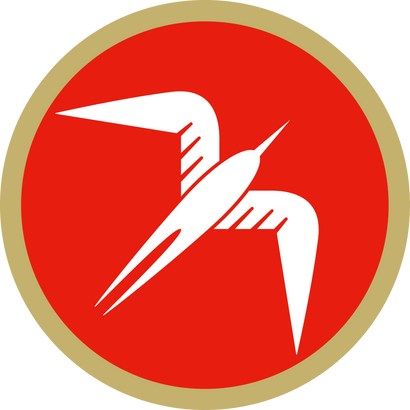
Staff Interview '' Keiya Takahashi / FUGLEN TOKYO ''

FUGLEN TOKYO opened in 2012 and celebrated its 6th anniversary on May 10th.
This time, we interviewed FUGLEN TOKYO manager Keiya Takahashi, who has been a staff member since the opening of the store, about “when I started working,” “changes in my view of coffee,” and “future prospects.”
- Six years have passed so quickly. When did you start working? -
Since November 2012.
I came to the store for the first time around July, not long after it opened.
At that time, Fuglen was procuring coffee beans from a Norwegian roaster, and it was a shocking experience to drink Tim Wendelboe's Ndumberi (Kenya) Aeropress at that time.
At the time when I was visiting coffee shops, Kenji and Yasuo (now the owner of TRUNK COFFEE BAR) stood in the shop, and I thought, "This shop is too scary.." It was shocking (laughs).
When I first met Kenji and talked with him, he asked me, "What does espresso mean to you?"
I didn't expect to be asked such a question, so I managed to narrow it down and answered desperately, but Kenji-san said, "It's different from our way of thinking," and swept it away (laughs)
After that, I studied coffee in order to go to Fuglen and talk about it.
At that time, there weren't many light roast restaurants, so Fuglen was a place to learn.

*Calm view in the morning in the early days of opening
- What made you decide to work? -
A staff member who was working at Fuglen at the time said, "My Kojima wants to talk to you." much less (laughs)
So, I immediately answered, "Thank you very much!" and started.
At the time, Fuglen had only been open for about half a year, so there were still many quiet hours.
At the same time, FUGLEN TOKYO was featured on the top of BRUTUS's coffee feature, and after that, the order continued to say, "Please give me an aero press!"
Since the aeropress was still an unknown tool, I explained the aeropress to almost all the customers.

- Some people say that the atmosphere of Fuglen is unique, not just coffee. Do you have a customer service concept? -
When I started working, I was told by my boss in Oslo that Fuglen had a way of thinking about treating people as if they were "hospitating a dear friend to their own home." .
Make it a person-to-person conversation.
In January 2016, I worked at Fuglen in Oslo for a month as a training, and the distance between the staff and the customers was just like that.
There were regulars who came three times a day, and the customers themselves were natural.
The staff say, "Thank you for coming," and the customer says, "Thank you for making it."
I liked that relationship.

-Is there anything you are conscious of recently in brewing, or is there an ideal cup? -
When I first started drinking coffee, I was shocked by the flashiness of Kenya, and I gradually became attracted to the beautiful floral flavors of Ethiopia.
Among them, Colombia's Buesaco Microlot #2, which I drank relatively soon after switching to home roasting, was shocking.
I really understood the feeling that coffee is sweet.
Fuglen just served Buesaco Espresso on the day of its 3rd anniversary, and it was really delicious, as sweet as an orange itself, with a long aftertaste.
Buesaco is a small town in the Tolima department in Colombia, but after hearing from Kenji that it was such a nice town that I wanted to move there, I wanted to go there.
In the case of espresso, we aim to create a cup with a long aftertaste that leaves a sweet aftertaste even after you've finished drinking and left the store.
It's not as dense as a liquid, but it's my ideal cup that has a smooth taste and a complex flavor.
I also like cappuccino. The espresso alone has a hard-to-understand flavor.
The Nelson Ramirez I'm using now has a plum-like impression when I drink it with espresso, but I like how it tastes like baked goods when mixed with milk.

- What are you conscious of in your work? -
I think that “imagination” is important in coffee and service.
For example, when a customer says, "I want a coffee that is not sour," do you want something that is not sour? Is it better to
What kind of coffee experience have you had so far, and what did you come to the store for?
I try to imagine what kind of experience I can provide to make them happy, from conversations and other exchanges.
I would like to be able to sense needs that customers themselves have not yet expressed in words and respond to them.
This includes consideration for the staff who stand with me at the counter, and it also means the ability to imagine how the work will unfold.

- What kind of store do you aim to create as a manager? -
I would like to create a store that "will be a good time for everyone."
For example, when you are waiting to order coffee, when you are choosing coffee at the cash register, even after you leave the store from the time you are drinking coffee, each person's own time is good. I want you to be
Whether it's someone who wants to slowly drink their usual cup of coffee, or someone who has come to the destination of their trip, we want everyone to have a good time and leave a pleasant aftertaste for a long time. increase.
- thank you very much. Please support FUGLEN TOKYO in its 7th year! -
-------------------------------------------------- ------------
If you would like to subscribe to our newsletter, you can register here .



